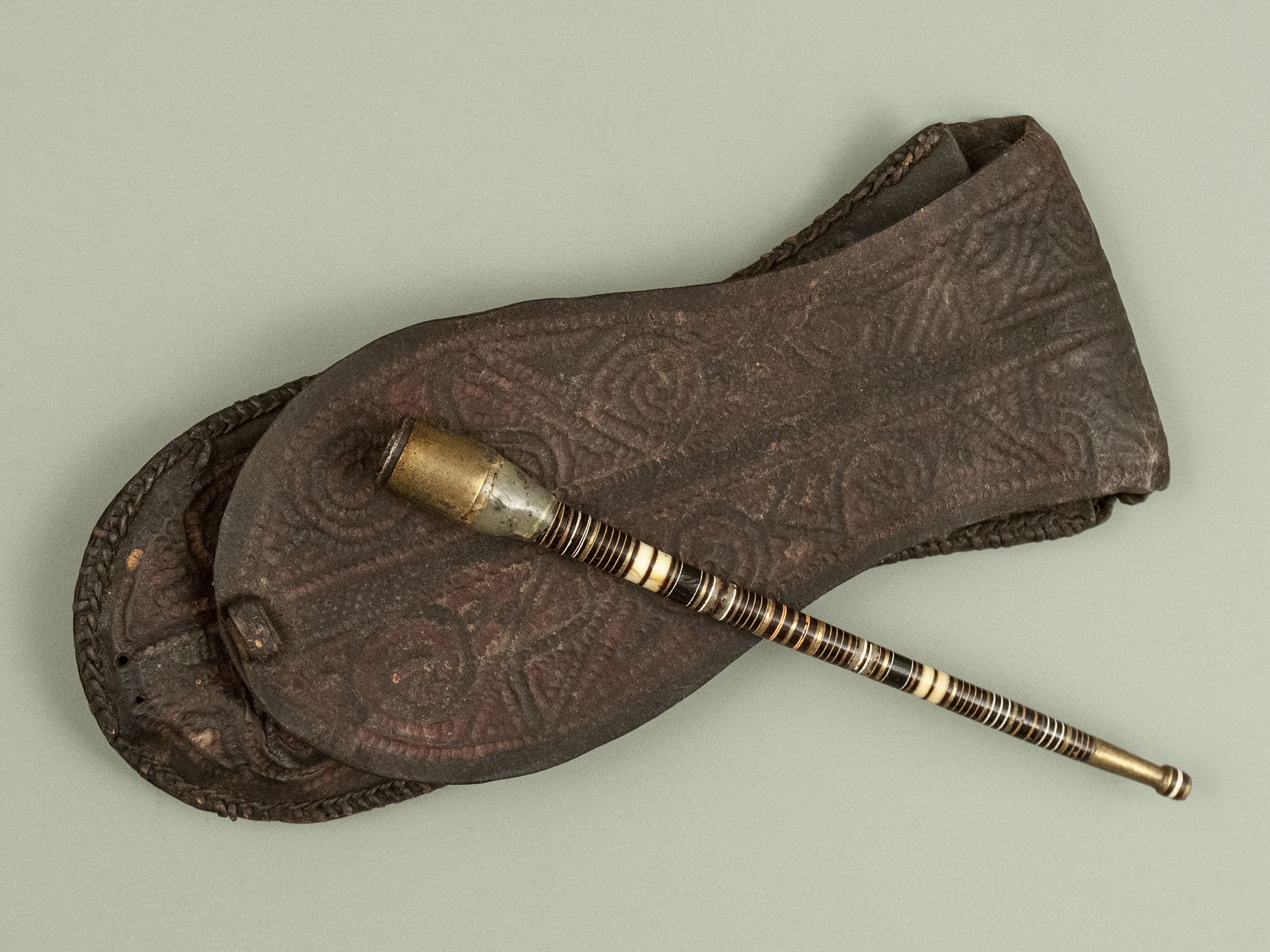Copper Brass Bone Pipe
Mauritania, 1994

Choum is a small village in northern Mauritania—a country I have accurately described as “the world’s largest cat litter box.”
Multiple vehicle breakdowns had forced me to spend a day in Choum. It was blazing hot in that tiny outpost on the edge of the Western Sahara. I sat in the fly-blown shade of a Berber home—more a cement shack—watching a tall Black man iron a djilaba. He filled his mouth with water from the spout of an aluminum teapot, then sprayed it onto the white cotton robe with the industrial hiss of a steam cooker.
Sahimed, a round-faced Moorish trader, had accompanied me to Choum in a shared cab. Now he faced me on a threadbare carpet. He fished a handsome little smoking kit from his own robe, and nodded matter-of-factly in the man’s direction. “That is one of the family’s slaves,” he announced.
“Slave?” I was flabbergasted. “Are you telling me that this family literally owns this man?”
“Yes. Slavery is now illegal in Mauritania,” Sahimed said, a bit ruefully. “Since 1981, when the president banned it. But many people own slaves. It is the way.” He shrugged. “And if free, where would they go?”
“You, too, own slaves?”
“Of course,” said Sahimed. He rolled a cigarette, placed it in a brass holder and struck a match with his nail.
I stared at him in slack-jawed silence. Sahimed finished his cigarette, returned the pipe to its pouch and held out the kit. “For you.” He placed his right hand over his heart, interpreting my revulsion as admiration. “A gift from a slave owner.”
